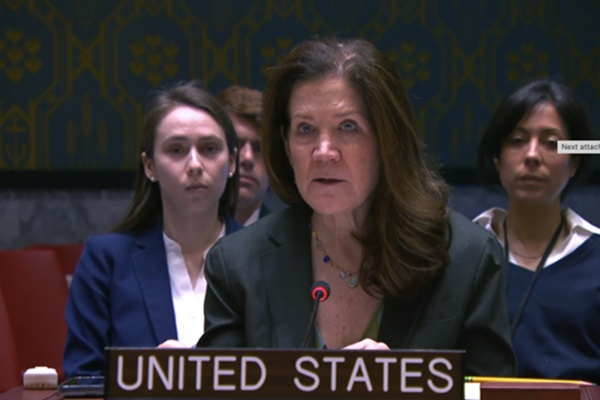At the United Nations Security Council meeting on March 27, 2025, the United States called for the immediate reopening of Goma International Airport in eastern Democratic Republic of Congo (DRC), a critical lifeline for humanitarian and economic operations in North Kivu province. Acting U.S. Ambassador to the UN, Dorothy Shea, emphasized the urgency of the situation, stating, “We demand that the M23 (...) take the necessary steps to reopen the airport without delay.”
Goma airport has been under M23 rebel control since January, following their seizure of Goma amid intensified fighting between the group—backed by Rwanda—and Congolese government forces. The airport’s closure has paralyzed relief efforts for millions of displaced civilians and disrupted vital supply chains for medical aid, food, and other necessities. Humanitarian organizations, including the UN and European Union, have repeatedly urged its reopening to establish a humanitarian corridor.
According to reports from Radio France Internationale (RFI), M23 has initiated demining operations at the airport, a crucial step toward resuming operations. However, significant obstacles remain: explosives must be fully neutralized to ensure air safety, the control tower must be restored, and baggage handling systems reactivated. Additionally, questions persist about who will oversee airport management. Collaboration between Kinshasa and M23 appears unlikely given ongoing hostilities, leaving the United Nations Mission in the DRC (MONUSCO) as a potential mediator or operator.
Dorothy Shea further demanded that M23 cease obstructing MONUSCO’s activities: “We demand that the M23 immediately cease obstructing Monusco operations.” Her statement underscores growing international frustration with the group’s actions amid a worsening humanitarian crisis.
The diplomatic context surrounding Goma’s airport is complicated by broader tensions in the region. Earlier in March, Ronny Jackson—a U.S. Congressman reportedly acting as an emissary for former President Donald Trump—visited several Great Lakes nations. While Jackson reaffirmed U.S. support for the DRC’s territorial integrity and advocated for a regional security framework, his comments sparked mixed reactions among regional leaders.
Speaking before a committee in the United States, Jackson reaffirmed the inviolability of the DRC's borders. However, he felt that a military solution would not end the conflict. He and other speakers at the session called for the establishment of a regional framework guaranteeing the security and economic interests of all players in the zone, while calling on Kinshasa to strengthen its governance.
This article was initially published in French by Georges Auréole Bamba
Edited in English by Ola Schad Akinocho










